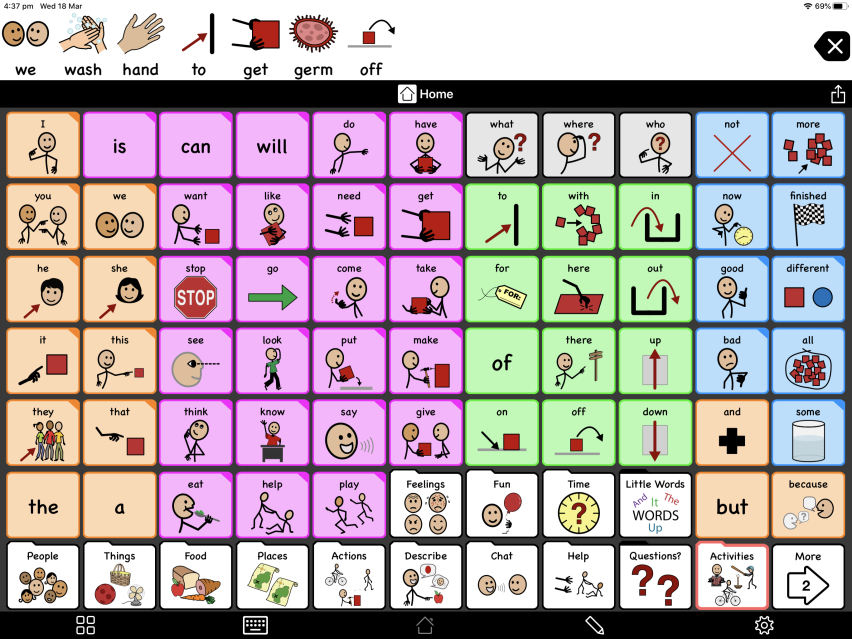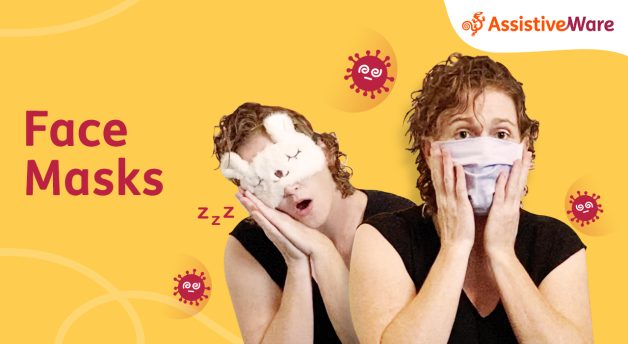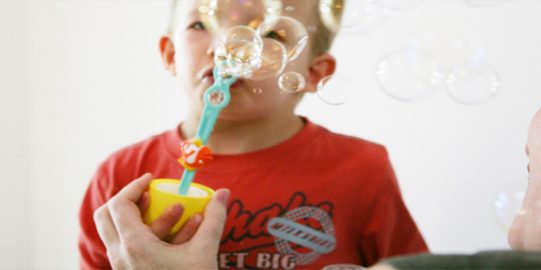My daughter Maggie uses Augmentative and Alternative Communication (AAC). She is struggling to understand the impact of COVID-19. Her daily routine has changed by the closure of local schools. Her favorite weekend outings are cancelled. We are almost hibernating! I can see her anxiety in her behavior and hear it in the sounds she makes. How do I explain something as abstract as a virus to someone who uses just one or two symbols at a time to communicate?
Explaining COVID-19 with AAC
Maggie understands abstract ideas best when we explain them using her AAC. She needs these visual supports to understand new ideas. It’s tempting to create special pages in her AAC. I could add new symbols and pictures to represent all these new words we are hearing. But there are just so many new ones: quarantine, pandemic, social distancing, and many more.
Fortunately, I don’t need lots of new words. Maggie has a robust and balanced AAC system. The words that are already in her AAC are almost enough. For example, a pandemic is when “many people get sick at the same time.” COVID-19 is “a very small germ that can make us sick.” We are social distancing, or “staying home so we can help not get anyone sick.” If we get sick, we will quarantine to “keep the germs from getting others sick.”
I can use Maggie’s ordinary words to explain what is happening. When I do this, Maggie learns new ways to use common, familiar words. This is a powerful skill for someone who uses AAC. There will always be words missing from her AAC, but I can teach her to get the most out of the words she has.
Talk about coronavirus in different ways
This is also a good opportunity to show Maggie how to use her keyboard to spell words. I spell when it’s a word we aren’t likely to use much. Maggie is still learning letter names and sounds, so I just focus on the first letter: “COVID-19…I hear a C.” Spelling the missing word shows Maggie that her keyboard can be a powerful communication tool. For example, if I say, “the germ, ”C”, you can guess I mean “COVID-19” or “coronavirus.”
5 Ideas to talk about coronavirus
1. Talk about WHAT is happening.
There is a germ that is making people sick. The germ goes from person to person. We are staying home so the germ can not get on us and make us sick. We are washing our hands to wash the germs off. Many people are staying home, too. If we all stay home, we will all not get sick. If the germ gets on us and we get very sick, we will go the hospital. The doctors and nurses will help us.






